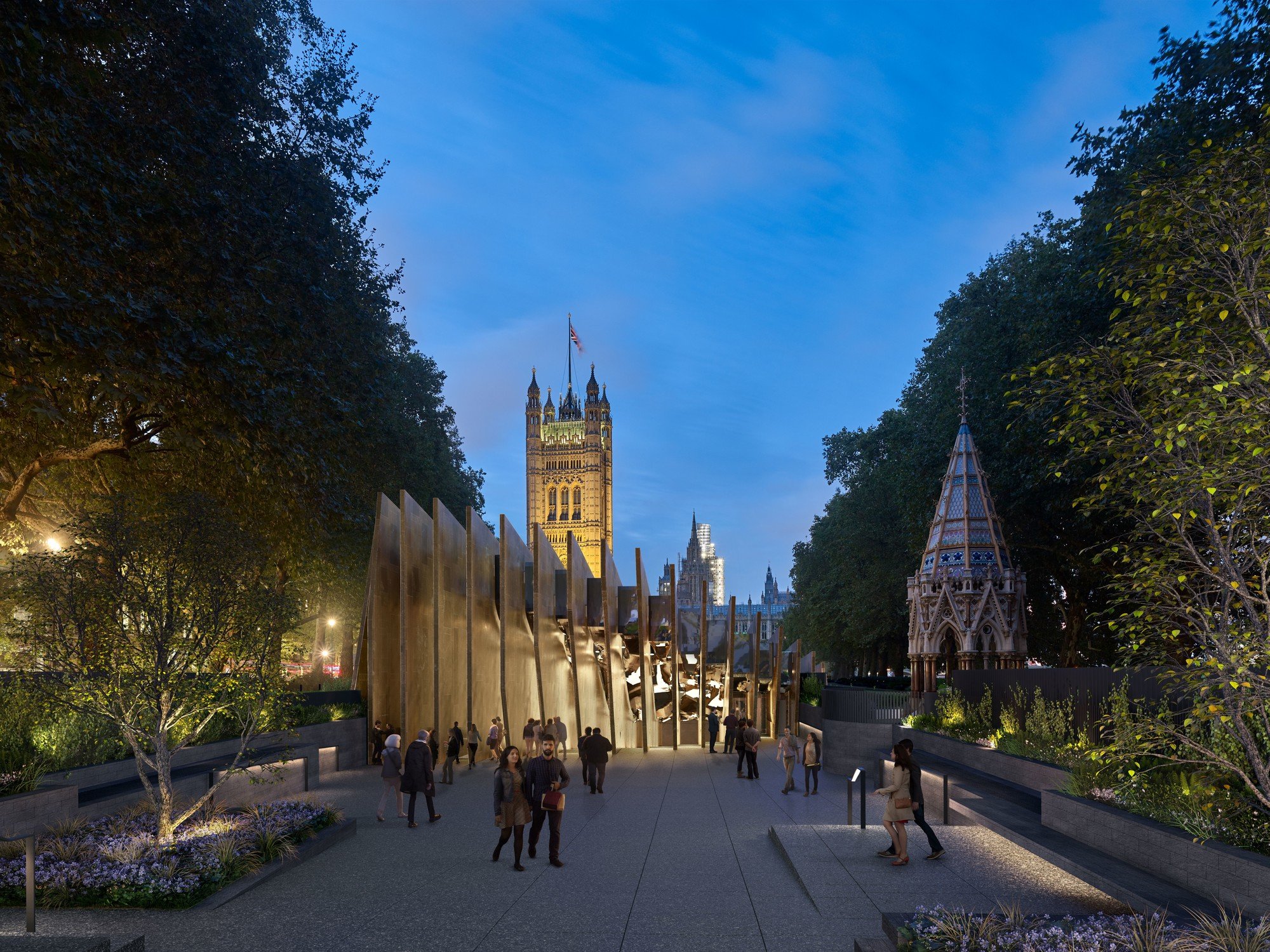
The British government has given the go-ahead for architect David Adjaye to build a national memorial to the victims of the Holocaust next to the Houses of Parliament in London.
Since it was first announced in 2016, progress on the project has been stalled by contention over the chosen site, and today’s news comes after government officials overturned a local authority’s decision to deny planning permissions.
The plan for the memorial, which was designed with Ron Arad Architects, includes 23 large bronze sculptures, with the spaces in between meant to commemorate the Jewish communities devastated by the Holocaust in 22 countries. The site will also include an underground educational center designed by Adjaye Associates, which is leading on the project.
A rendering of Adjaye Associates and Ron Arad Architects’ design for the Holocaust Memorial and Learning Centre in Victoria Tower Gardens.
“We have a duty to ensure that the history of the Holocaust is never forgotten and never repeated,” the U.K.’s communities secretary, Robert Jenrick, said in a statement. “The Memorial and Learning Center will allow everyone to reflect, remember, and honor those who suffered and died and to educate future generations in anti-Semitism.”
The learning center beneath the site will educate visitors about the Holocaust, as well as subsequent genocides in Cambodia, Rwanda, Bosnia, and Darfur.
Construction is slated to begin later this year and will be completed by 2025. The U.K. government is contributing £75 million ($105 million) to build the memorial, while an additional £25 million ($35 million) has been raised through donations. The government will also give supplemental funding to cover the costs of running the site, and to ensure entry remains free.
A rendering of Adjaye Associates and Ron Arad Architects design for the Holocaust Memorial and Learning Centre in Victoria Tower Gardens.
Planning permissions were first submitted in 2018, and rejected by local authorities two years later. The council and residents argued the memorial would overwhelm the nearby compact gardens, which were already close to other memorials, including one to suffragette Emmeline Pankhurst; the Buxton Memorial Fountain commemorating the abolition of slavery; as well as Rodin’s Burghers of Calais.
In October, 42 academics penned a letter saying the site next to the Houses of Parliament would exaggerate the U.K.’s historical response to the Holocaust, and portray the nation as “the ultimate savior of the Jews.” Some leading figures in London’s Jewish community also expressed concerns that the memorial could be a terrorist target.
But the Board of Deputies of British Jews welcomed the latest development.
“There will be something uniquely powerful about locating a memorial to the Holocaust right next to the center of the U.K.’s democracy,” its president, Marie van der Zyl, said in a statement.
But not all opposition to the project has been silenced. At least one local campaigning group, Save Victoria Tower Gardens, has said it will appeal against the decision.